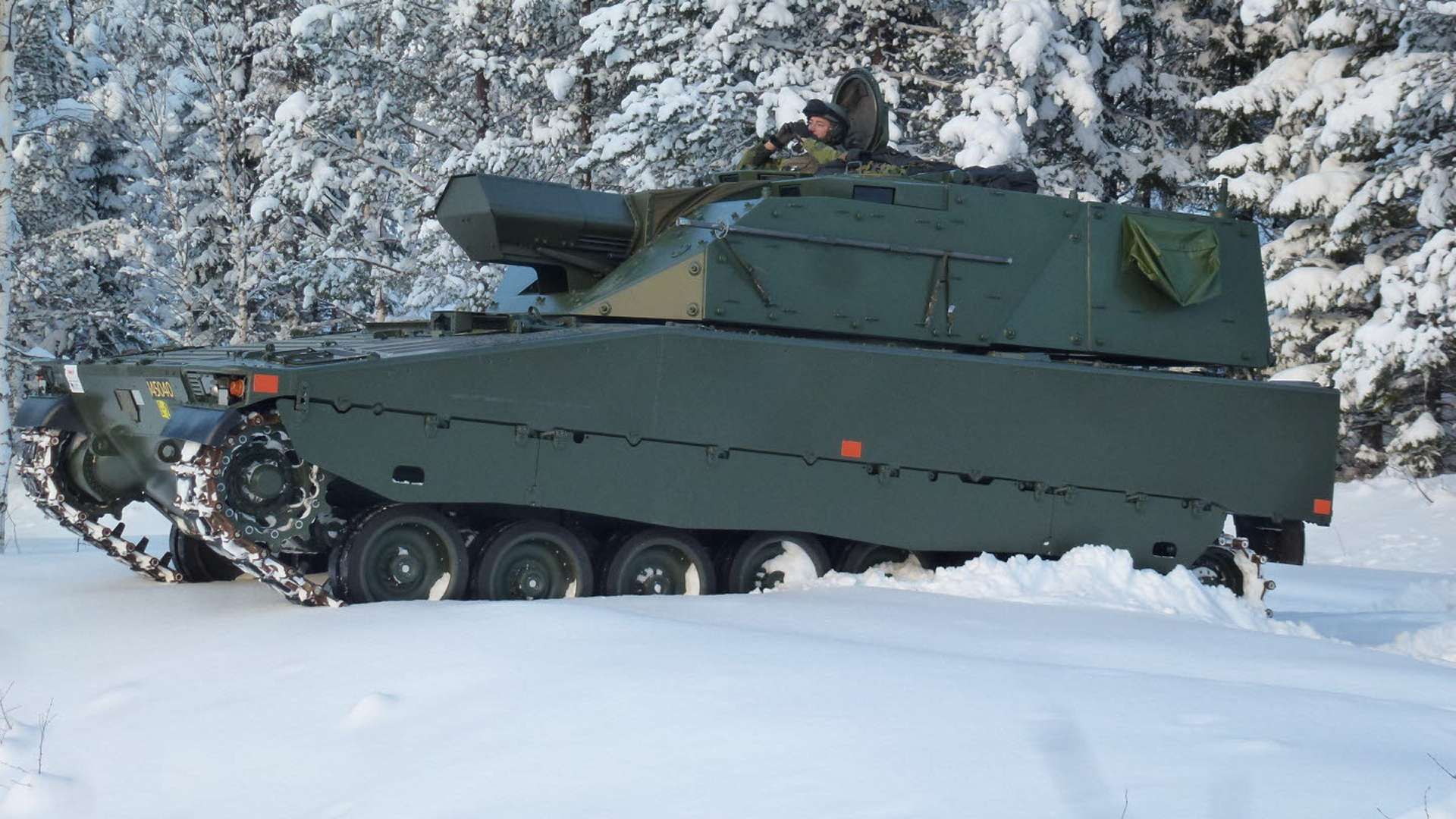Breaking news
Netherlands purchases Swedish-made Mjölner 120mm self-propelled mortars for superior fire support.
On June 11, 2024, the Dutch Ministry of Defense announced the procurement of Mjölner 120mm self-propelled mortars based on the CV90 infantry fighting vehicle (IFV). The introduction of these systems, manufactured by the Swedish company BAE Hägglunds, is intended to create a layered ground-based fire support system to support the armored infantry units, engaging enemy light armored units and dismounted infantry, thereby contributing to the operational capabilities of the mechanized infantry units both currently and in the future.
Follow Army Recognition on Google News at this link

The Mjölner 120mm self-propelled mortars are expected to create a layered ground-based fire support system to support the Dutch armored infantry units, engaging enemy light armored units and dismounted infantry (Picture source: Swedish MoD)
Intended for the Dutch mechanized units, the initial delivery of these Mjölner 120mm self-propelled mortar systems is expected in 2028. Currently, the mechanized units of the Dutch army possess a total of 83 L16/M1 81mm mortars, which are effective only at short ranges. In contrast, the new 120mm mortars have a range of 7-12 kilometers compared to the 5,650 m range of the 81mm mortars and a higher rate of fire. The new system's efficiency is supported by modern C4I (command, control, communications, and intelligence) systems, and its accuracy will be enhanced with GPS-guided ammunition.
The 81mm mortars currently in use are transported in Fennek reconnaissance vehicles and must be assembled outside the vehicle. The new 120mm mortars will be mounted on the chassis of the larger and more robust CV90, offering better protection for the soldiers due to its stronger armor. Additionally, the soldiers will not need to leave the vehicle to operate the weapons, providing more space for personnel, ammunition, and equipment.
Nearly all CV90s in the Dutch military will receive a midlife upgrade (MLU) from now until 2026, conducted by the Dutch industry. Post-upgrade, these vehicles will remain operationally relevant until the end of their service life in 2039. Following the MLU, the CV90s will be equipped with the new mortar systems, a process expected to be completed by 2028. Ammunition procurement will be handled through a separate project. Some CV90s from the logistical reserve will also undergo an MLU for their chassis, with these vehicles being equipped with a different turret to accommodate the mortars.

The Netherlands is not the only NATO country to adopt the Mjölner 120mm system; Sweden, which recently joined NATO, also uses this system, under the name Granatkastarpansarbandvagn 90 (Grkpbv90). (Picture source: Swedish MoD)
The Netherlands is not the only NATO country to adopt the Mjölner 120mm system; Sweden, which recently joined NATO, also uses this system, under the name Granatkastarpansarbandvagn 90 (Grkpbv90). Compared to dismounted mortar systems, the Mjölner offers significant improvements. The time required to set up, commence firing, and relocate is considerably reduced. After firing, the system can quickly change position, minimizing the risk of counter-fire from the enemy. According to BAE Systems, the mortar can be ready to fire within two minutes and can move out within one minute after the last shot. This mobility and operational speed facilitate quicker engagement and provide additional protection for the four-man crew, which includes a driver, commander, and gunner-loaders, by reducing the risk of enemy counter-fire.
The Mjölner system, developed and produced by BAE Systems Hägglunds, is designed to enhance the indirect fire capability of suitable vehicles, whether wheeled or tracked. This turret solution includes two smoothbore 120mm gun barrels mounted on the vehicle. The system employs a mechanical loading mechanism, ensuring rapid and reliable reloads in various combat conditions. The turret provides 60 degrees of slew in azimuth without requiring a power-assisted solution, and it offers an elevation range from 45 to 85 degrees, enabling the engagement of targets over a wide range of distances.
The Mjölner system is designed to maximize space within the vehicle through a basket-less design, optimizing ergonomics for the crew. Ammunition storage in the turret bustle allows for rapid and easy access during loading, firing, and resupply operations, accommodating up to 56 grenades. The system's scalability includes the potential for integrating advanced automated fire-control systems and compatibility with various 120mm mortar ammunition types, including Strix. The Mjölner has a maximum rate of fire of 16 rounds per minute and a sustained rate of six rounds per minute, with a range of up to 13 kilometers using standard range ammunition.
























